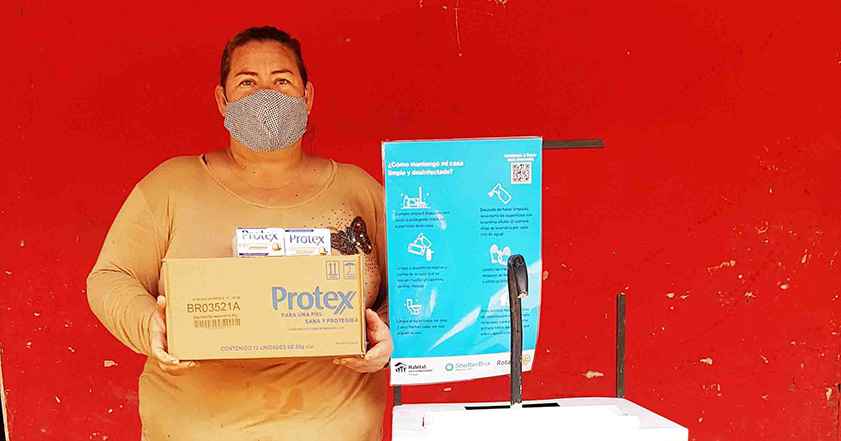The first time I visited Paraguay was in 2014, when heavy rain and flooding forced thousands of people to leave their homes.
Within a few days of being there, I knew that this was going to be unlike any other country I had worked in with ShelterBox. I fell in love with the people and their unapologetic realness. Never before had I talked to someone about a life-altering experience of leaving a flooded home, and what aid items they needed to rebuild – all while they gutted a chicken. There was something about that honesty that appealed to me!
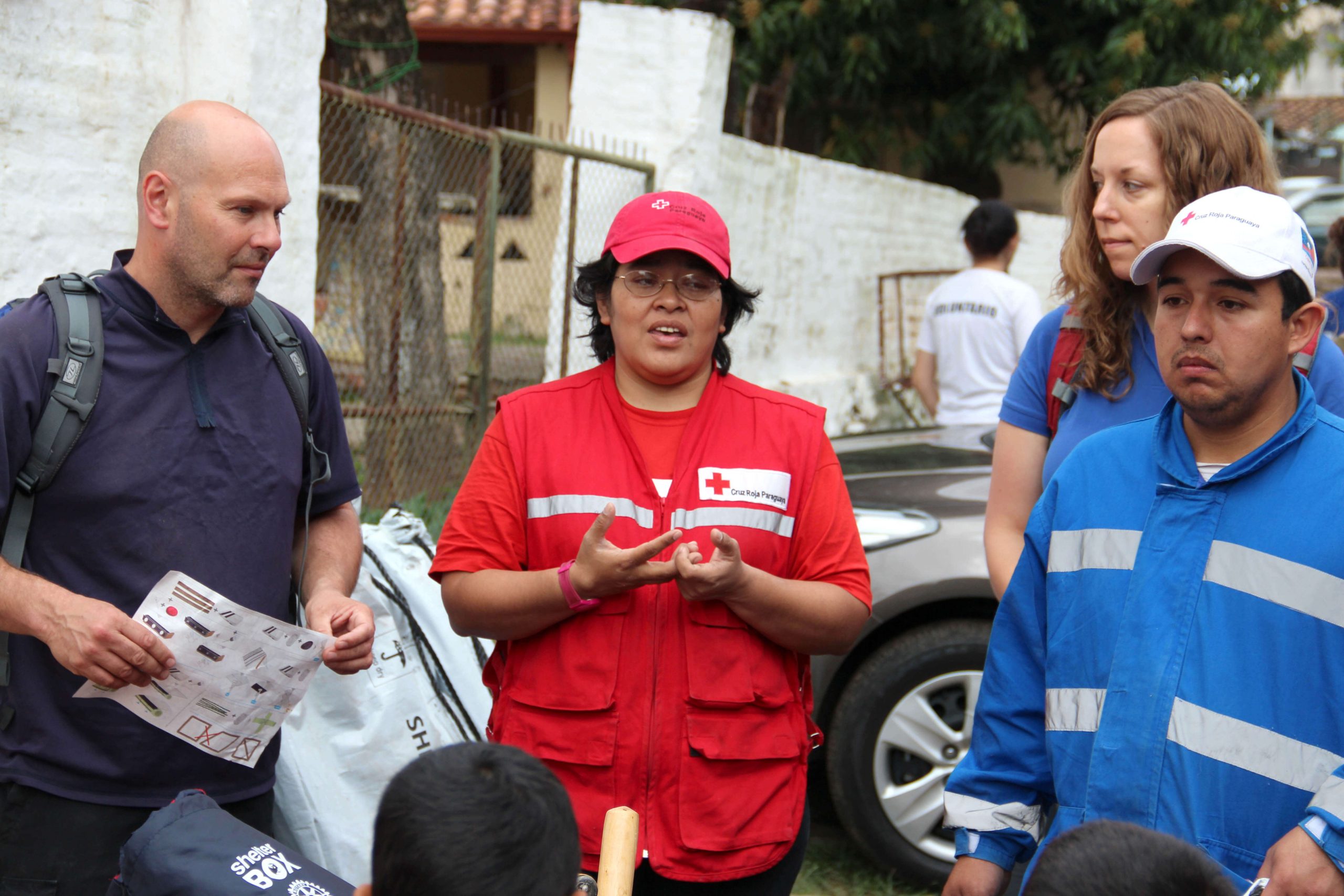
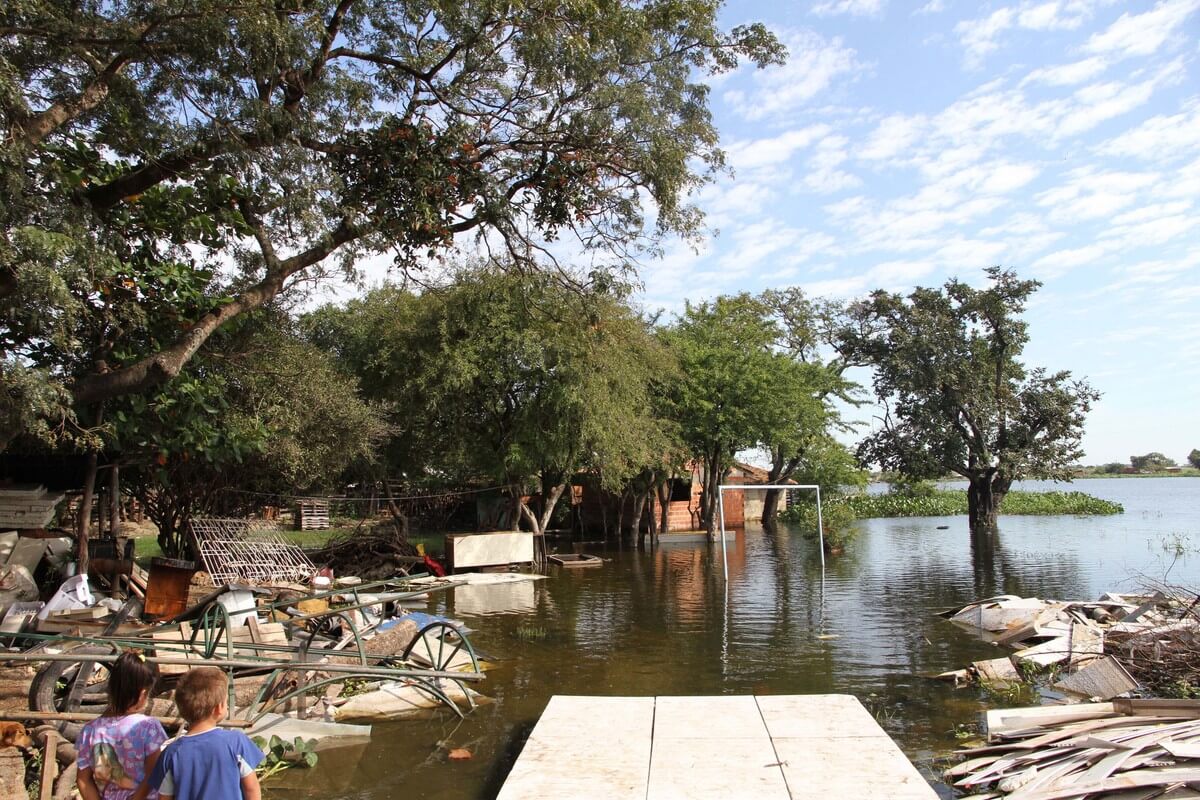
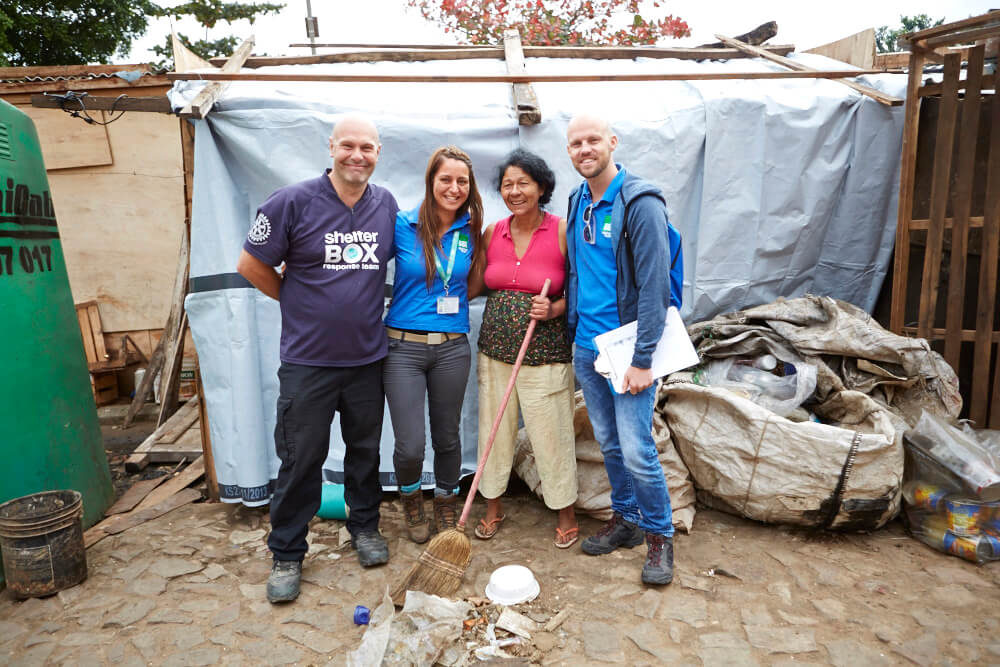
My first visit to Paraguay in 2014, responding to flooding
That’s why I’ve been so pleased to be involved again with ShelterBox’s latest project in Paraguay. That, and I quite enjoy that the project is a little unusual compared to how we typically work! Whereas we normally support families with aid items, this year we’re supporting families with information about coronavirus. It’s completely different to how we’ve worked anywhere else before – and it’s a challenge that ShelterBox was determined to take on.
What’s happening in Paraguay?
Flooding happens on a semi-annual basis in Paraguay. Families in the marginalised communities we’re working with live in basic huts made of plywood and other non-permanent materials (see image below). When the flooding comes, they move their homes from the riverside to a drier area. And when it subsides, they move back again.
That’s where ShelterBox came in last year. We supported families with the tools and skills they needed to rebuild their homes and make them stronger than before.
Coronavirus in Paraguay
This year we expect flooding to happen again. But there is another more terrifying threat – and it’s the one we’re all battling with right now. Coronavirus. Latin America is now the worst-affected region in the world, with over 27% of worldwide cases (Reuters). And with the first coronavirus cases now in Paraguay, the threat is real for families who are already struggling.
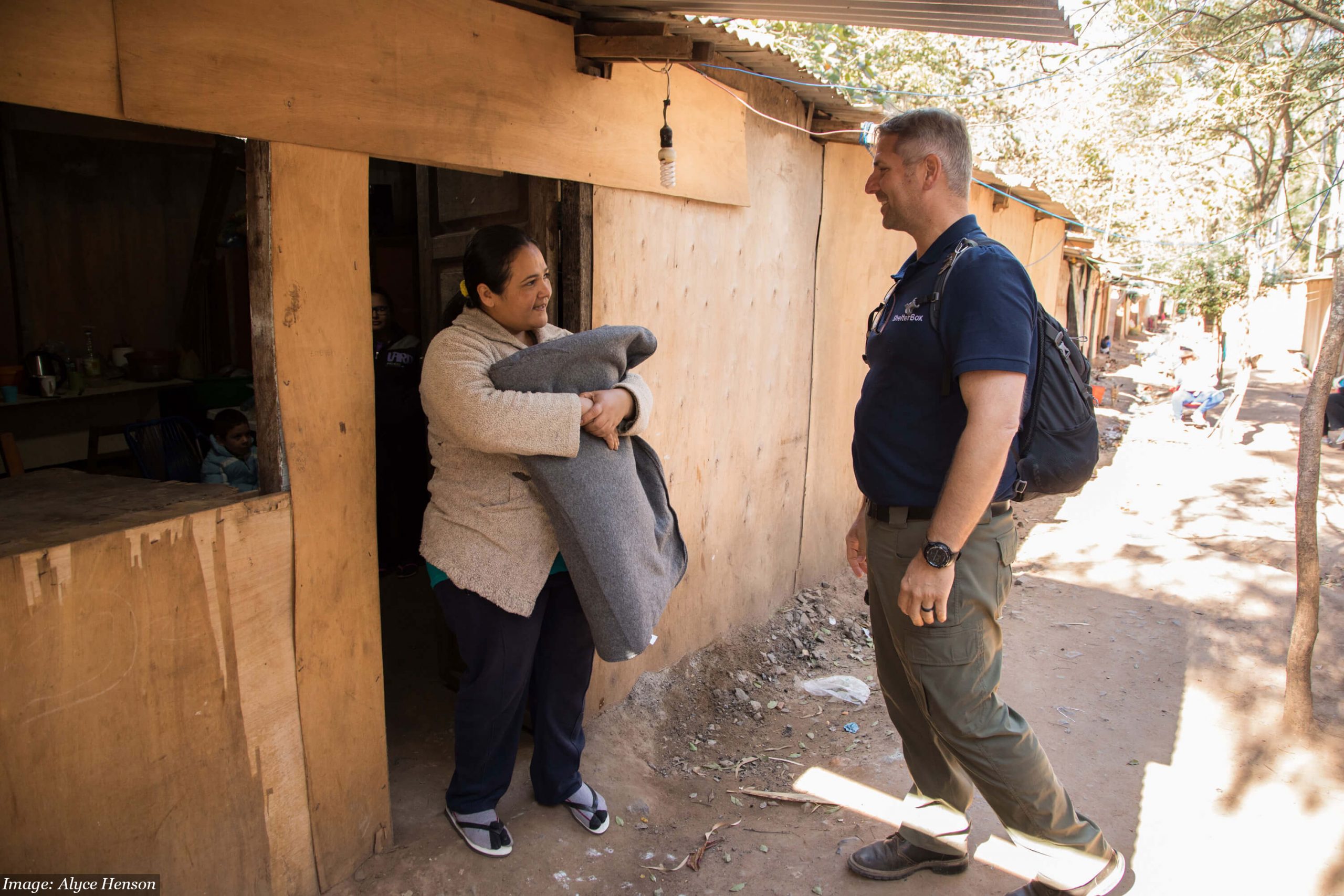
Homes made of plywood are common in the marginalised communities we’re working with
Many of the people we’re working with don’t have dedicated access to information that can help them to protect themselves from the virus. To top it off, people aren’t able to self-isolate in their homes – there simply isn’t enough space. A lockdown is practically impossible, as is physical distancing, and there is very little healthcare available.
This means that information on how to protect themselves against coronavirus is crucial. Which is exactly why we decided to go back to Paraguay this year and revisit the families we supported in 2019.
How are we supporting families?
In a typical ShelterBox response, we might support families with aid items like tents, water filters, kitchen sets and other essential household items. But because we responded to flooding in Paraguay just last year, the families we’re working with already have these things – what they really need now is information.
That’s why we have partnered with Habitat for Humanity Paraguay to create information campaigns. This includes leaflets and posters that show people how they can use their ShelterBox aid items to create additional space, how to isolate somebody, how to clean effectively, the importance of handwashing, and more.
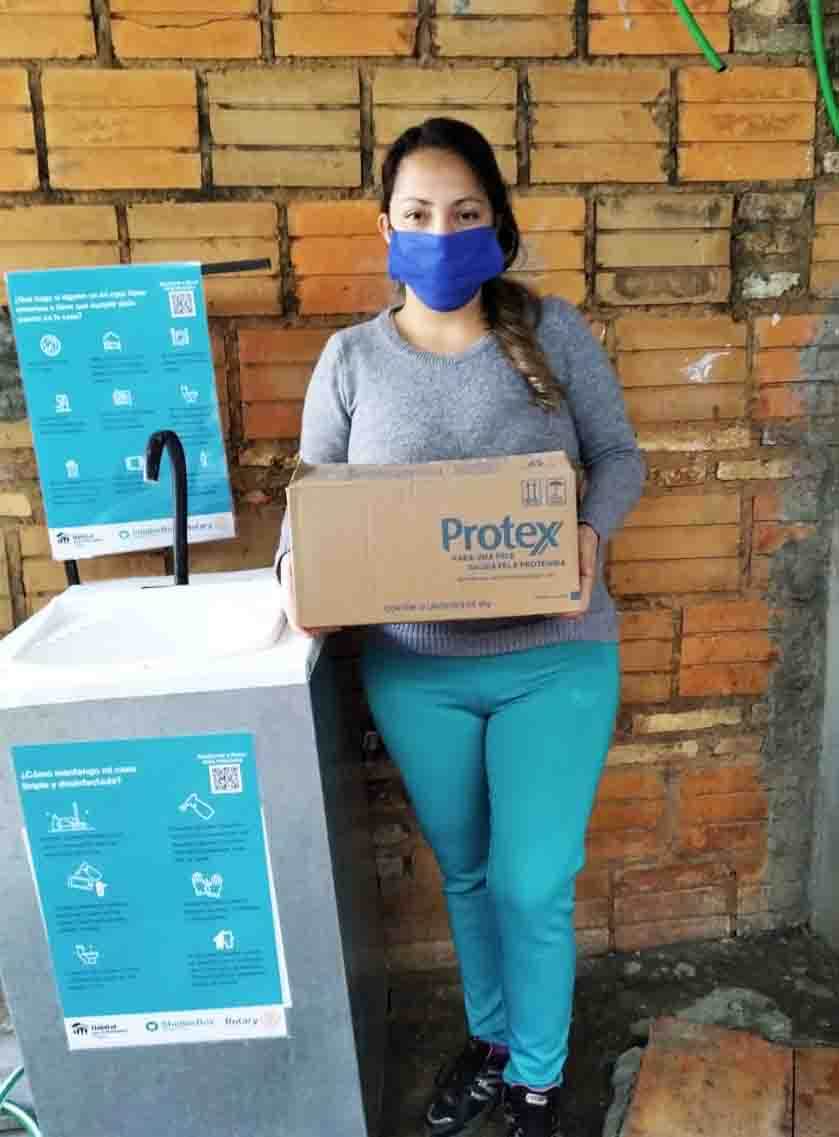
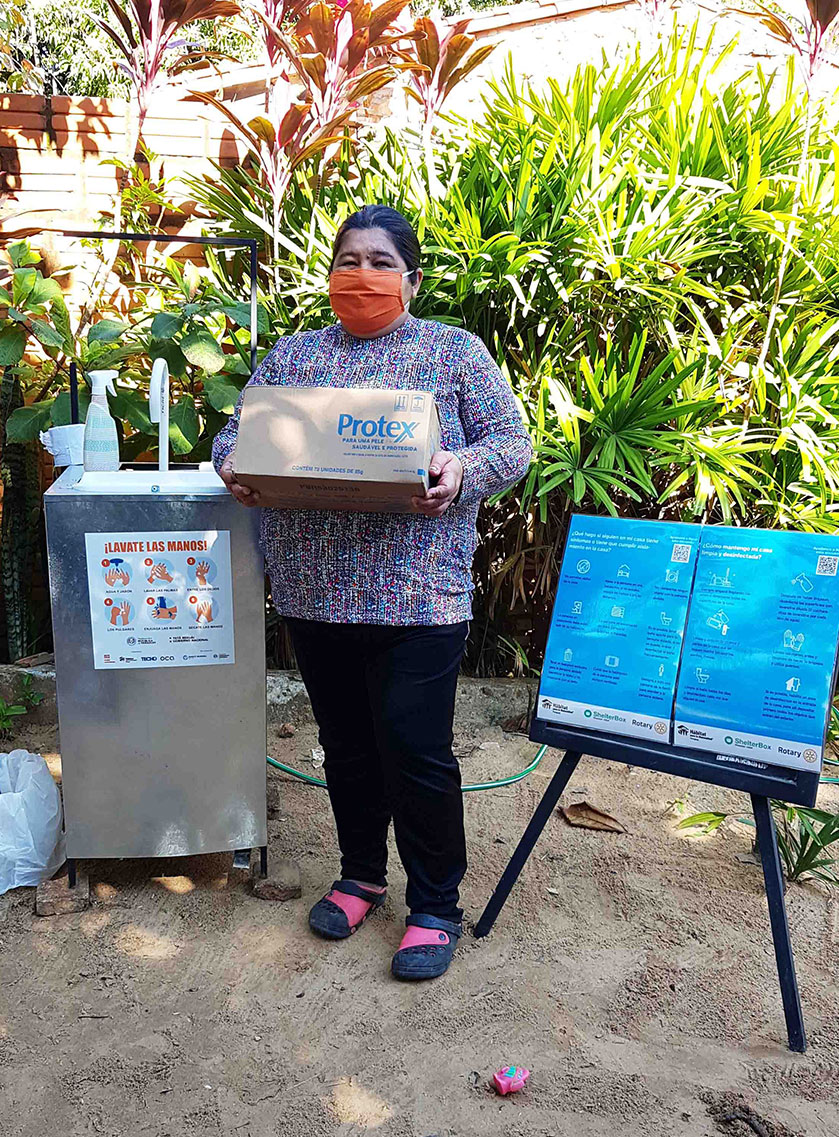
Leaflets, posters, banners and Whatsapp messages have been shared with the communities in Paraguay
Banners have been put up in over 50 locations throughout the communities we worked with last year. We’re also sending WhatsApp messages directly to communities and community leaders with this information so we can reach families directly.
Translation is so much more than recreating text word for word – our partners at Habitat for Humanity have made these messages more powerful by putting them into a context that’s relevant to the communties we’re supporting. For example, in the same way that people meet for tea or coffee here, friends often gather in Paraguay and drink Tereré (the national drink of Paraguay – similar to an iced herbal tea). One of the key messages Habitat for Humanity advised us to include was not to share your Tereré with friends. This helps to make the information real for people’s daily life and culture!
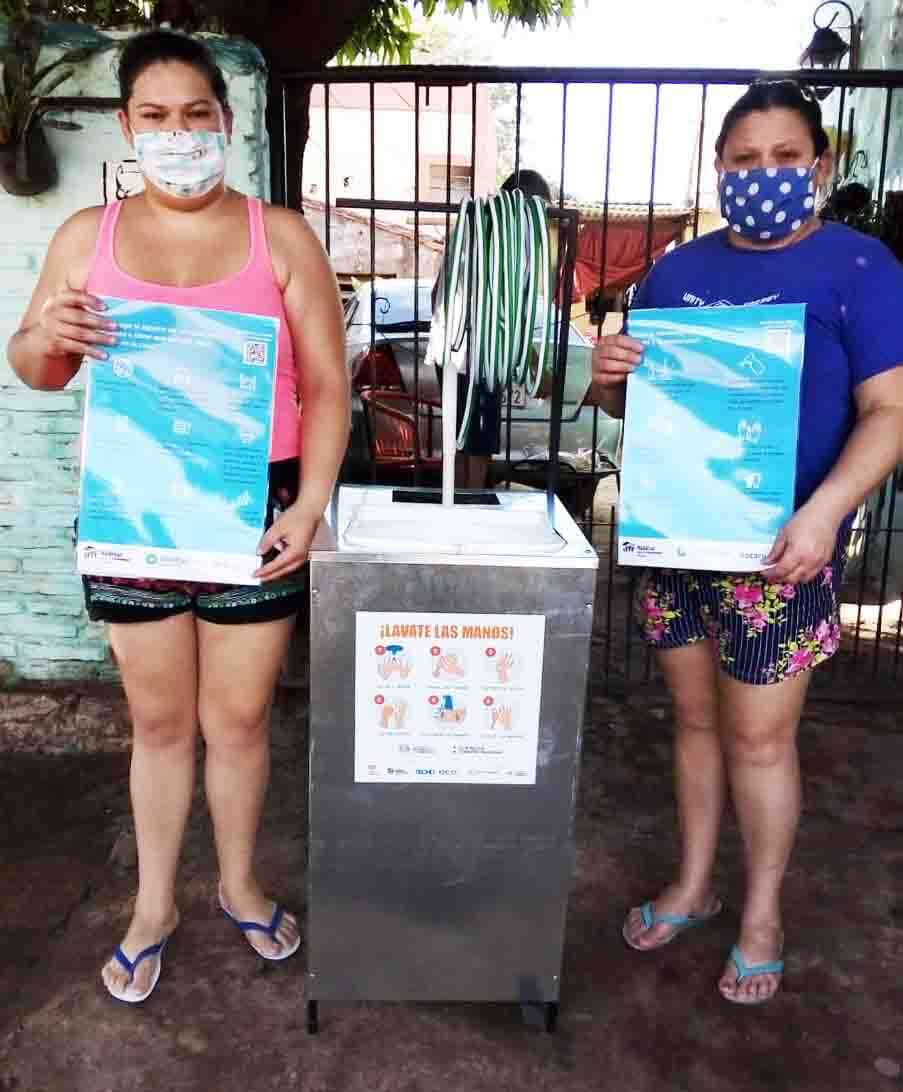
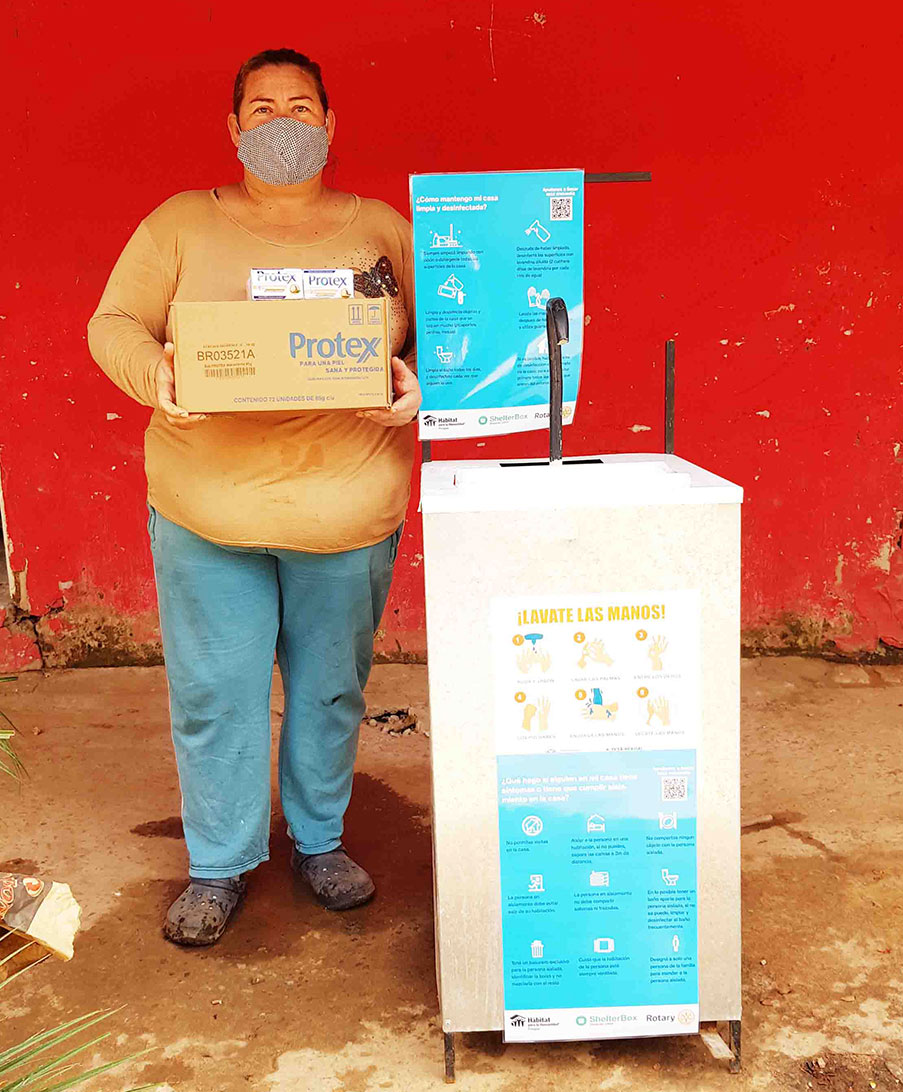
All in all, the messages we are sharing with families in Paraguay are simple – but it means that people have a chance. It means they can know in advance how to protect themselves, which we all know is vitally important when it comes to the fight against coronavirus.
At ShelterBox we are dedicated to supporting people after disaster and helping them to protect themselves from coronavirus. To learn more about how we’re responding to the pandemic around the world, visit our coronavirus hub.

